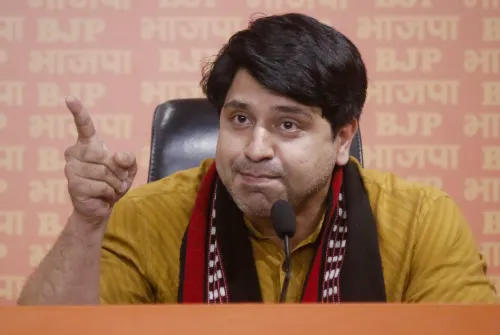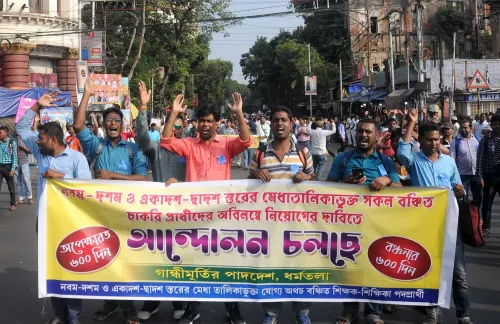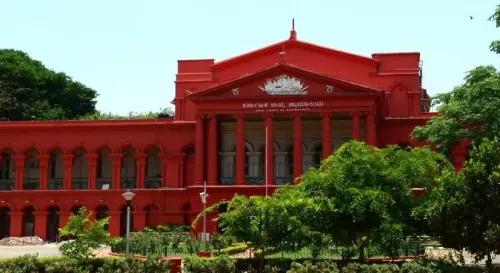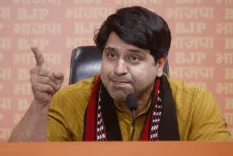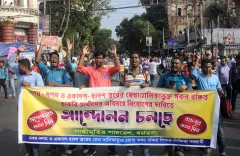The Price of Disruption: Analyzing the Impact of Parliamentary Chaos Over the Years
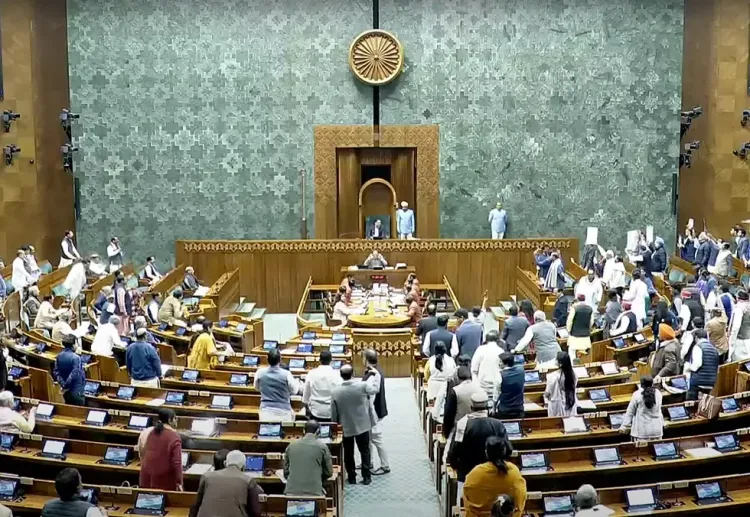
Synopsis
Key Takeaways
- High cost of disruptions: Rs 2.5 lakh per minute.
- Opposition protests prioritized over governance.
- Parliament sittings halved since the 1950s.
- Consistent decline in parliamentary productivity.
- Political immaturity affecting democratic processes.
New Delhi, Jan 31 (NationPress) India, recognized as the world’s most extensive democracy, is anticipated to exemplify proficient Parliamentary operations. Nonetheless, in recent years, the persistent disruptions, protests, and walkouts led by the opposition have significantly obstructed the democratic processes of the nation.
The opposition has faced severe criticism for hindering the legislative proceedings and failing to partake in productive discussions. Allegations have surfaced that opposition parties have put political theatrics ahead of the nation's interests, which has not only stalled development but also squandered taxpayer funds. The troubling reality is that the country is bearing the consequences of a Parliament incapacitated by partisan interests.
The toll of these disruptions is substantial—not just in terms of squandered taxpayer money (approximately Rs 2.5 lakh every minute) but also regarding the detriment to democratic values.
Here’s a chronological exploration of how disruptive strategies have compromised the efficiency of India’s Parliament:
2014: During the Winter Session, the Lok Sabha operated smoothly, whereas the Rajya Sabha suffered from disruptions. Matters such as religious conversions and the detention of a state minister by the CBI resulted in seven days of halted proceedings.
Despite the Lok Sabha functioning for 98 percent of its scheduled time, the Rajya Sabha achieved only 59 percent productivity.
2015: The Budget and Monsoon Sessions showcased remarkable productivity in the Lok Sabha (123 percent), but the Rajya Sabha faced ongoing disruptions. Critical topics like farmer suicides and the CAG report on renewable energy financing led to legislative paralysis. The Monsoon Session was particularly disastrous, with the Rajya Sabha recording a mere 9 percent productivity, largely due to opposition-led disruptions regarding issues like Lalit Modi and Vyapam.
2016: The Budget and Winter Sessions saw the Lok Sabha achieving 122 percent productivity, while the Rajya Sabha struggled at 91 percent. Protests concerning the suicide of Rohith Vemula overshadowed discussions. The Winter Session suffered from extensive disruptions due to demonetisation, resulting in a 92-hour loss of time in the Lok Sabha, costing taxpayers Rs 144 crore.
2017: The Winter and Monsoon Sessions were equally tumultuous. The Rajya Sabha’s productivity plummeted to just 56 percent during the Winter Session, thanks to opposition protests over triple talaq, Bhima-Koregaon violence, and Gujarat election campaigns. The Monsoon Session witnessed chaotic events, leading to the suspension of 25 Congress MPs, yet the Lok Sabha managed a high productivity of 110 percent.
2018: Numerous disruptions regarding the Rafale deal and the Cauvery dam construction occurred in Parliament. The Winter Session ending in January 2019 recorded the lowest productivity of the year, with the Lok Sabha working at only 46 percent. The Monsoon Session faced protests regarding the National Register of Citizens, leading to another washout, with the Lok Sabha at 86 percent productivity.
2019: The year began with the opposition voicing allegations of EVM tampering, questioning the electoral process's integrity. During the Winter Session, disruptions due to Rahul Gandhi’s “rape in India” comment and the Citizenship Amendment Bill caused significant unrest. Nevertheless, the Lok Sabha excelled with 116 percent productivity. The Budget Session also saw impressive productivity (135 percent), with vital legislations like the abrogation of Article 370 and the Triple Talaq Bill being passed, despite ongoing protests regarding the Citizenship Amendment Act.
2020: The Covid-19 pandemic resulted in a drastic reduction in Parliamentary sittings. The Monsoon Session was significantly shortened to only 10 days, experiencing minimal disruptions. The Budget Session likewise faced limitations due to the national emergency.
2021: The Winter Session commenced with the repeal of farm laws passed without discussion, resulting in the suspension of 12 Rajya Sabha MPs. Protests over the Lakhimpur Kheri violence and farmers' demands for MSP legislation dominated proceedings, leading to low productivity; the Lok Sabha recorded 77 percent, while the Rajya Sabha only achieved 43 percent.
During the Monsoon Session of 2021, Parliament was again hampered by the Pegasus spyware scandal, farm laws, and price hikes. The session concluded two days early, with just 21 percent productivity in the Lok Sabha and 26 percent in the Rajya Sabha—marking one of the least productive sessions in recent memory.
2022: The Winter Session was truncated due to protests over the India-China border clash in Arunachal Pradesh. The Rajya Sabha achieved 94 percent productivity, whereas the Lok Sabha only reached 88 percent. The Monsoon Session also faced disruptions, resulting in one of the least productive sessions, with Lok Sabha productivity at just 47 percent and Rajya Sabha at 42 percent.
2023: The Winter Session was characterized by protests related to a security breach in Parliament and political maneuvering surrounding the Hindenburg report, with opposition MPs accusing the government of mismanaging corporate governance issues. The Monsoon Session continued to be dominated by the Manipur violence, even though the government showed willingness to discuss the matter. Despite the government’s offers for engagement, opposition MPs insisted on a statement from the Prime Minister, further obstructing proceedings.
2024: In the Winter Session, the indictment of a major Indian conglomerate by a US court in the days preceding the session became the focal point of the Opposition's protest strategy in Parliament. This timing was no coincidence; the opposition aimed to exploit the issue to overshadow significant parliamentary discourse.
With protests, walkouts, and sloganeering likely taking precedence, it was evident that the opposition's strategy was to derail the session instead of participating in constructive debates or legislative business.
Budget Session 2024: In July 2024, the INDIA bloc MPs, led by Congress President Mallikarjun Kharge, Congress Parliamentary Party chief Sonia Gandhi, and Leader of Opposition Rahul Gandhi, staged demonstrations on the Parliament grounds over what they labeled as a ‘Discriminatory Budget’. They accused the government of bias against opposition-ruled states, a claim that quickly resonated as a rallying cry for the opposition. This session, like many before, was marked by protests rather than productive discussions.
Data from PRS indicates that the number of Parliament sittings has halved compared to the 1950s and 1960s. For the past eight consecutive sessions, both Houses of Parliament have been adjourned prematurely, highlighting a troubling trend of political immaturity and a lack of respect for democratic principles.

